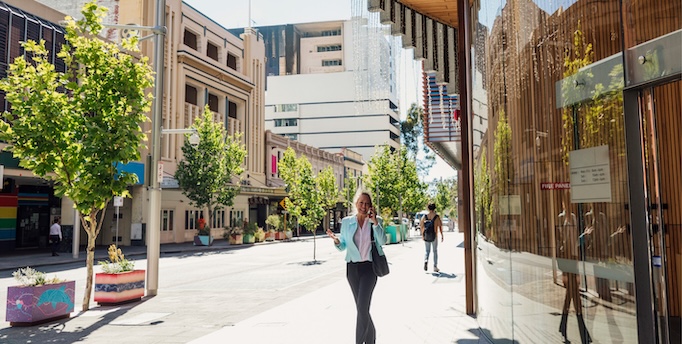As interest rates continue to pressure profit margins, developers and investors may lean towards public-private partnerships (PPPs) as a strategic tool to leverage a more sustainable profit margin. PPPs involve a collaboration between a public entity (governmental) and a private company to finance, build and operate public interest projects, like new mixed-use commercial spaces, business parks and industrial zones. This approach serves as a catalyst for community revitalization and economic growth, attracting private capital and expertise to projects that create jobs, enhance infrastructure and drive local prosperity.
Beyond Billion-Dollar Projects
Although PPPs are often associated with large-scale undertakings, such as stadiums or transportation networks like bridges, these partnerships can be equally transformative at smaller scales. Projects ranging from $20 million to $70 million—such as mixed-use residential and retail redevelopments that revitalize downtowns and repurpose industrial or suburban commercial spaces—can generate significant economic impact.
The possibilities are endless and we’re already seeing a variety of PPPs emerge across the country. In Pennsylvania, a health system expanded with a new neighborhood hospital; in Wisconsin, a shipyard expansion project was undertaken; and in Minnesota, a flood risk management initiative was launched. Each PPP project fosters new business opportunities, creates new jobs and bolsters economic resilience on the local level.
Leveraging Private-Sector Innovation
PPPs enable municipalities to tap into private-sector innovation, efficiency and expertise. Private companies bring proven design, construction and operation infrastructure that streamlines delivery timelines and reduces costs for projects. These collaborations share the financial and operational risks between public and private partners, incentivizing and strengthening accountability throughout the project.
Financial Incentives and Opportunity Zones
For private companies, PPPs offer significant financial advantages. Municipalities may offer tax abatements, financing assistance and access to tax-exempt bond financing. In addition, projects located within Qualified Opportunity Zones (QOZs) can yield significant tax benefits, including the deferral and potential exclusion of capital gains tax. QOZs include thousands of low-income communities in all 50 states, providing opportunities for meaningful investment.
Reimagining Communities: A Case in Colorado
In Colorado, where there was a shortage of more than 106,000 housing units in 2023, one ski town took action by buying two properties from a ski resort for $6 million to build affordable housing for year-round residents. Recognizing the need for private expertise, the local municipality partnered with a developer to design and construct multifamily housing near key amenities, such as middle and high schools, grocery stores and a popular ski lift.
After five years of transparent planning and public hearings, the developer created a single-purpose entity (SPE) and entered into a lease with the municipality’s economic development fee owner. The SPE financed the $27-million project through a National Municipal Bond Cooperative. These cooperatives facilitate issuance and management of municipal bonds. The development was comprised of 28 apartments, eight condominiums and three townhomes, which addressed a critical housing need, while exemplifying how PPPs can deliver community-aligned solutions.
Building Stronger Communities Through Partnership
In a market defined by higher interest rates and increased labor and supply costs, PPPs represent a strategic path forward. They empower private companies to pursue financially viable projects, while enabling municipalities to meet infrastructure and public policy demands. Municipal public development professionals are charged with developing new businesses opportunities, growing existing businesses and supporting workforce development initiatives. When leveraged strategically, public-private partnerships do more than fund construction—they help reimagine the communities where we live, work and thrive.
Exploring how public-private partnerships can support your next commercial project? Our National Commercial Services Team can help you navigate the title and closing process with confidence. Whether you're handling complex title issues or seeking guidance on closing strategies, we offer the expertise and resources to move your project forward. Learn more at oldrepublictitle.com/commercial/ncs and call us today to connect with a commercial specialist near you.




